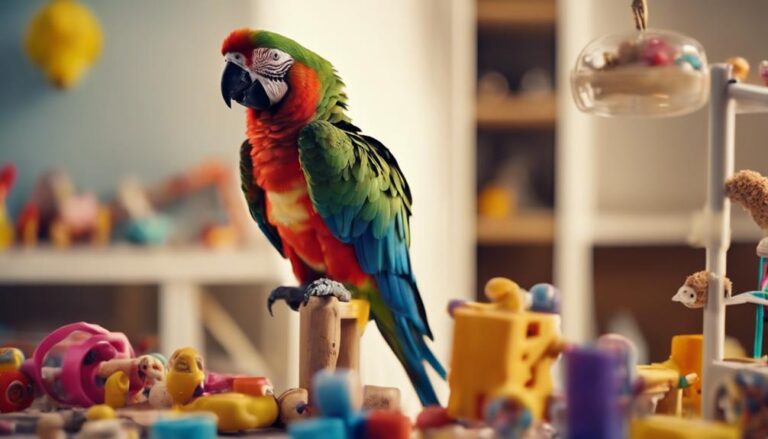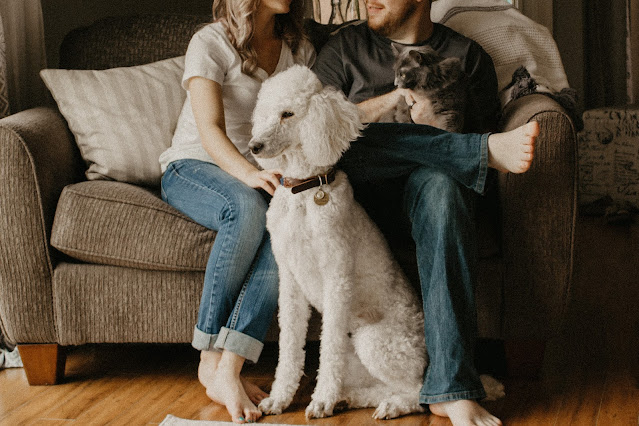The Final Farewell: Coping With The Death Of Beloved Pets

Coping With The Death Of Beloved Pets: Have you ever wondered why losing a beloved pet can be so devastating? The bond between humans and their furry companions is often deep and profound, and when that bond is broken, the grief can be overwhelming. But how do you cope with the death of a beloved pet? How do you navigate the emotions and find solace amid such loss? In this discussion, we will explore various ways to cope with pet loss and provide you with valuable insights and strategies to help you through this difficult journey. So, if you’re ready to discover how to say your final farewell and find healing during loss, let’s begin.
Understanding Pet Loss Grief
Understanding the grief experienced after the loss of a beloved pet is an essential step towards healing and finding support during this difficult time. Losing a pet is not just losing an animal; it is losing a beloved family member. The depth of the human-pet bond and the circumstances surrounding the pet’s death can greatly influence the level of grief experienced. It is important to recognize that grieving the loss of a pet is a normal and valid response to such a significant loss.
The grieving process for pet loss involves stages and resurfacing of grief. It is normal to feel sad, and lonely, and to express grief through various means like writing and talking. Surrounding yourself with understanding individuals who can empathize with your pain is crucial. Taking time off work to process your emotions and engage in activities that bring comfort, such as looking at photos or journaling, can also help cope with grief.
Honoring your pet’s memory is an important part of the healing process. Holding a memorial service, creating a scrapbook, or donating to an animal shelter can help you say goodbye and remember your pet in a meaningful way. Seeking support from pet loss groups, trusted counselors, and veterinary teams is crucial in managing grief and working toward healing.
Dealing With Others’ Insensitivity
Dealing with the insensitivity of others can be challenging and painful when grieving the loss of a beloved pet. It can feel disheartening when friends and loved ones fail to understand the depth of your mourning. While they may not fully appreciate the significance of pet loss, it is important to set boundaries to protect your emotional well-being.
It is natural to seek support and understanding during this difficult time. Surround yourself with empathetic individuals who can offer solace and comfort. Connecting with others who have experienced pet loss can provide a non-judgmental space to share and process your feelings. Sharing stories and memories of your beloved pet can be therapeutic and healing.
Unfortunately, there may be instances where you encounter insensitivity from those around you. People may make thoughtless comments or fail to acknowledge the impact of your loss. It is essential to respond to such remarks with assertiveness and understanding. Remember that their insensitivity is not a reflection of your grief or the significance of your pet’s life.
Focusing on your own healing journey is crucial. While it can be tempting to dwell on others’ insensitivity, redirecting your energy towards self-care and honoring your pet’s memory is more beneficial. Engage in activities that bring you comfort and find healthy outlets for your emotions, such as journaling or creating a memorial for your pet.
Supporting Seniors Through Pet Loss
If you or someone you know is a senior who has recently lost a beloved pet, it is important to acknowledge the unique bond between seniors and their pets. Losing a pet can have a significant impact on emotional well-being, and it is crucial to provide compassionate and empathetic support during this difficult time. There are resources available, such as senior grief support groups, pet loss counseling, and emotional assistance programs, that can help seniors cope with their grief and adjust to life without their furry companion.
Senior Grief Support
When coping with the loss of a beloved pet, seniors may find solace and support through specialized grief counseling and resources. Losing a pet can be especially difficult for seniors, as they may have formed a deep bond with their furry companion over many years. The loss of a beloved pet can result in a profound sense of grief, similar to the loss of a close family member.
Senior grief support can provide a safe space for individuals to express their emotions and share their experiences with others who have gone through similar losses. These support groups often offer resources and guidance on how to navigate the grieving process, including coping strategies and rituals to honor the memory of their beloved pet. Seeking support from empathetic individuals who understand the unique bond between humans and animals can help seniors navigate through the difficult journey of pet loss and find comfort in their grief.
Pet Loss Resources
After experiencing the profound grief of losing a beloved pet, seniors can find comfort and support through a variety of pet loss resources tailored to their needs. Losing a pet can be a devastating experience, and it is important to have resources available to cope with the pain and grief that come with such a loss. There are numerous support networks and organizations that offer assistance to seniors who are grieving the death of their pets. These resources can provide a safe space to express emotions, share stories, and find solace in the understanding and empathy of others who have gone through similar experiences.
Additionally, pet loss support groups and veterinary teams can offer guidance and counseling to help seniors cope with their grief. These resources can provide valuable information on the grieving process, offer coping strategies, and help seniors navigate the difficult decisions surrounding pet euthanasia. By seeking support from these resources, seniors can find the strength and comfort needed to heal from their loss and honor the memory of their beloved pets.
Emotional Assistance Programs
Emotional Assistance Programs provide tailored support and guidance to seniors as they navigate the stages of grief following the loss of their beloved pets. Losing an animal companion can be an incredibly difficult and emotional experience, and these programs aim to provide the necessary emotional support and bereavement support for seniors during this challenging time.
They understand the deep connection and role that pets play as family members for seniors and offer resources specifically designed to help cope with the emotional impact of pet loss. Through pet loss support groups and counseling services, these programs create a community of support and understanding for seniors, addressing their unique needs and providing specialized coping strategies. They recognize that coping with the death of a pet can be a significant loss, and are here to offer empathy, guidance, and comfort as seniors navigate through their grief.
Helping Children Cope With Pet Loss
Losing a beloved pet can be an incredibly difficult experience for children, but there are ways to help them cope with their grief. It’s important to remember that children may not fully understand the concept of pet loss, so it’s crucial to create an open and safe space for them to express their emotions and ask questions. Encouraging open communication with friends and family can also provide much-needed support during this challenging time.
One way to help children cope with pet loss is to involve them in rituals or memorials to honor the pet’s memory. This could include creating a scrapbook of memories, planting a tree or flower in the pet’s honor, or even holding a small ceremony to say goodbye. These activities can help children feel a sense of closure and provide them with a tangible way to remember their beloved pets.
It’s also important to assure children that it’s okay to feel sad and to provide ongoing support as they grieve. Let them know that it’s normal to miss their pet and that their feelings are valid. Encourage them to talk about their emotions and provide gentle reassurance that they are not alone in their grief.
Additionally, it can be helpful to offer distractions and outlets for children to express their emotions. Engaging in activities they enjoy, such as drawing, writing, or playing with friends, can provide a healthy outlet for their feelings. Encourage them to share stories and memories about their pet, as this can be therapeutic and help keep their beloved pet’s memory alive.
Making the Decision for Euthanasia
When considering the difficult decision of euthanasia for your beloved pet, it is important to carefully assess their quality of life and consult with a veterinarian for professional guidance. It is a decision no pet owner wants to make, but sometimes it becomes necessary to prevent further suffering. Evaluating your pet’s quality of life involves considering their ability to engage in activities they once enjoyed, their pain levels, and their overall well-being. It’s crucial to take into account any terminal illnesses or chronic conditions that may be causing them distress.
Discussing euthanasia with your veterinarian can provide valuable insight into the options available and help you make an informed decision. They can provide guidance on the benefits and risks of continuing treatment, as well as the potential outcomes. Your veterinarian’s expertise and compassion can help ease the burden of decision-making during this challenging time.
When contemplating euthanasia, it is essential to prioritize your pet’s comfort and dignity in their final moments. Your veterinarian can explain the process and ensure that your pet’s passing is as peaceful and painless as possible. They can also discuss options such as home euthanasia, where your pet can be in a familiar and comfortable environment surrounded by loved ones.
Making the decision for euthanasia can be emotionally overwhelming. It is important to recognize that you are not alone in this journey. Seek support from friends, family, or support groups who have experienced similar situations. Allow yourself to grieve and process your emotions. Remember the love and joy your beloved pet brought into your life, and know that you made this decision out of love and compassion.
In the end, making the decision for euthanasia is never easy, but it can be the most compassionate choice for your beloved pet. Trust your instincts, lean on your veterinarian for support, and remember that you are doing what is best for your furry friend.
Explaining Euthanasia to Children
Explaining euthanasia to children can be a challenging but necessary conversation to help them understand and cope with the compassionate decision made to end a pet’s suffering. Losing a beloved pet is heartbreaking, and it’s natural for children to feel a wide range of emotions during this difficult time. It’s important to approach this conversation with sensitivity, using simple and honest language that they can understand.
Start by emphasizing that euthanasia is a compassionate decision made to end a pet’s suffering. Explain that sometimes, when a pet is very sick or in a lot of pain, the kindest thing we can do is help them find peace. Let your child know that this decision was made out of love for their pet, and it was not an easy choice for anyone.
Allow your child to express their feelings and ask questions about euthanasia. Listen attentively and validate their emotions. Reassure them that it’s okay to feel sad and offer comfort and support. Let them know that you are there for them and that you understand how much they love their furry friend.
Encourage your child to remember and cherish the happy memories they shared with their pet. Talk about the fun times, the love and companionship their pet provided, and the special bond they had. Help them understand that even though their pet is no longer physically with them, the love and memories will always remain.
Lastly, remind your child that it’s okay to find it difficult to say goodbye. Grief is a natural response to loss, and everyone copes with it in their own way. Let them know that you are there to help if they need it, whether it’s talking about their feelings, creating a memorial, or finding ways to honor their pet’s memory.
Explaining euthanasia to children is a tough conversation to have, but it can be an important step in helping them understand and cope with the loss of their beloved pet. With love, support, and understanding, you can help your child through this challenging time.
Finding Healing in Pet Memories
As you navigate through the grieving process with your child, it’s important to find healing in the cherished memories you shared with your beloved pet. Remembering the positive aspects of your relationship can greatly contribute to your mental health and overall well-being. Reflect on the joy and happiness your pet brought into your life. Think about the times when your pet made you laugh, comforted you when you were sad, or simply provided companionship. These memories can provide solace and serve as a reminder of the special bond you had with your furry friend.
In times of loss, it is crucial to seek support from trusted friends, loved ones, and pet loss support groups. The Association for Pet Loss is a valuable resource that offers counseling services and support networks for individuals coping with the death of their beloved pets. Connecting with others who have experienced similar losses can provide a sense of understanding, empathy, and comfort during this difficult time.
In addition to seeking support, it is essential to prioritize self-care. Take care of your physical well-being by maintaining a healthy lifestyle, engaging in regular exercise, and eating nutritious meals. Engage in activities that bring you joy and relaxation, such as spending time in nature, practicing mindfulness, or pursuing hobbies. These self-care practices can help alleviate stress and promote healing.
If the intensity of your loss affects your daily functioning or if you find it difficult to cope, it may be helpful to seek professional help. A therapist or counselor who specializes in pet loss can provide guidance and support as you navigate through the grief process.
Lastly, while no pet can ever replace the one you lost, when you feel ready, consider opening your heart to a new pet. Embrace the idea that a new furry companion can bring love and joy into your life, while still honoring the memory of your beloved pet.
Remember that finding healing in pet memories is a personal journey, and it’s okay to take your time. Be gentle with yourself, lean on your support system, and allow the cherished memories of your beloved pet to bring comfort and healing as you navigate through the grieving process.
Moving Forward: Getting Another Pet
Consider taking the time to mourn the loss of your beloved pet before you think about welcoming a new furry companion into your life. Coping with the death of a pet is a difficult time, and it’s important to honor your emotions and give yourself space to grieve. Remember, getting another pet won’t replace the one you lost, but it can bring new joy and love into your life.
There is no right or wrong time to get a new pet. Each person grieves differently, and it’s essential to listen to your own heart and instincts. When you feel ready, embrace the opportunity to open your heart and home to a new furry friend. Seek guidance from your veterinarian, who can provide support and advice on finding the right pet for you and your family.
While moving forward, it’s important to find ways to honor and keep the love for your precious pet alive. Create a special memorial, such as a photo album or a personalized keepsake, to cherish the memories you shared. Consider volunteering at an animal shelter or donating to a pet charity in your pet’s name. These acts can help you find solace in knowing that you are making a difference in the lives of other animals.
Coping With The Death Of Beloved Pets Frequently Asked Questions
How Do You Say Goodbye to a Beloved Pet?
Saying goodbye to a beloved pet can be tough. But there are coping strategies, memorializing rituals, and pet loss support out there to help you through. Remember, it’s okay to grieve and honor their memory.
Why Losing a Pet Hurts So Much?
Losing a pet hurts so much because of the bond and unconditional love we share. It’s a painful process, but finding ways to cope, creating a pet memorial, and seeking support can help you heal and move forward.
What Do You Say When a Beloved Pet Dies?
When a beloved pet dies, it can be incredibly difficult. But remember, it’s okay to grieve. Find coping mechanisms, seek support from others who understand, create a pet memorial, and find closure by creating a tribute.
What Are the Stages of Grief After Losing a Pet?
Losing a beloved pet can be incredibly difficult. The stages of grief include denial, anger, bargaining, depression, and acceptance. Coping strategies such as seeking support, memorializing memories, and seeking professional help can aid in the healing process.
Conclusion
In conclusion, remember that the loss of a beloved pet can be incredibly difficult, but it is important to allow yourself time to grieve and heal. Surround yourself with understanding and supportive individuals who can help you through this challenging time. Honor your pet’s memory in ways that bring you comfort and consider seeking support from pet loss support groups or professionals if needed. Remember, your journey of healing is personal and unique, and it’s okay to take the time you need while keeping your pet’s memory alive.








